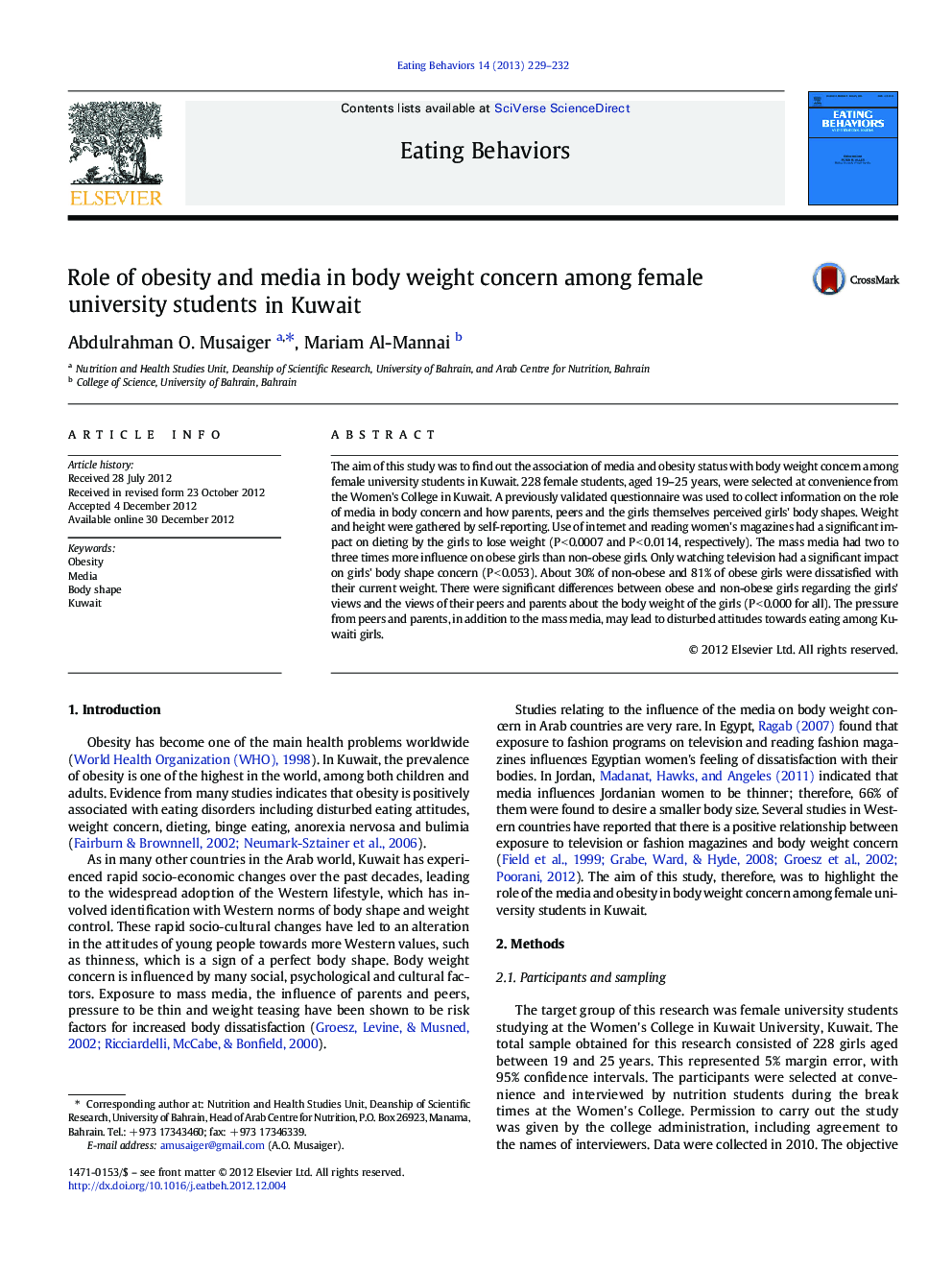| Article ID | Journal | Published Year | Pages | File Type |
|---|---|---|---|---|
| 906471 | Eating Behaviors | 2013 | 4 Pages |
The aim of this study was to find out the association of media and obesity status with body weight concern among female university students in Kuwait. 228 female students, aged 19–25 years, were selected at convenience from the Women's College in Kuwait. A previously validated questionnaire was used to collect information on the role of media in body concern and how parents, peers and the girls themselves perceived girls' body shapes. Weight and height were gathered by self-reporting. Use of internet and reading women's magazines had a significant impact on dieting by the girls to lose weight (P < 0.0007 and P < 0.0114, respectively). The mass media had two to three times more influence on obese girls than non-obese girls. Only watching television had a significant impact on girls' body shape concern (P < 0.053). About 30% of non-obese and 81% of obese girls were dissatisfied with their current weight. There were significant differences between obese and non-obese girls regarding the girls' views and the views of their peers and parents about the body weight of the girls (P < 0.000 for all). The pressure from peers and parents, in addition to the mass media, may lead to disturbed attitudes towards eating among Kuwaiti girls.
► The study included 228 female university students, aged 19–25 years, from Kuwait. ► Internet, television and magazines had a significant impact on body shape concern. ► Significant differences between obese and non-obese girls were observed. ► The pressure from mass media, may contribute to eating attitudes among Kuwaiti girls.
